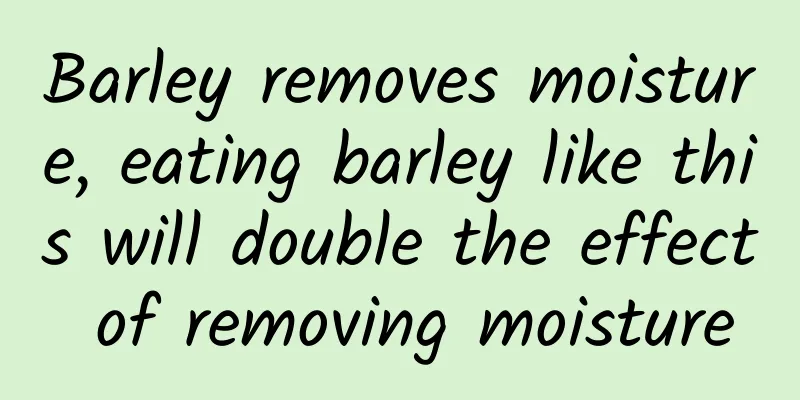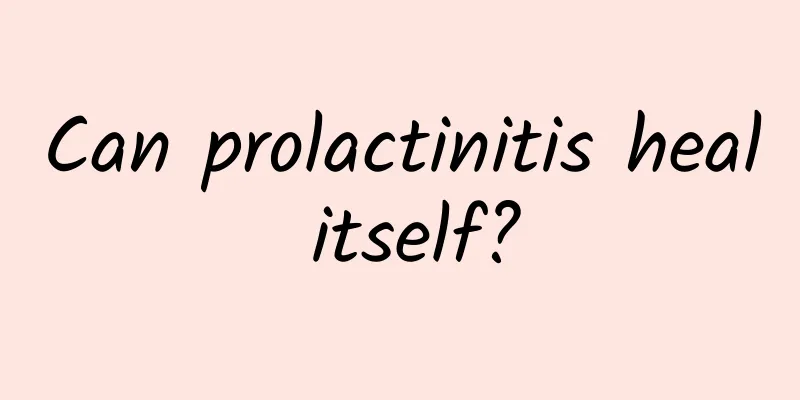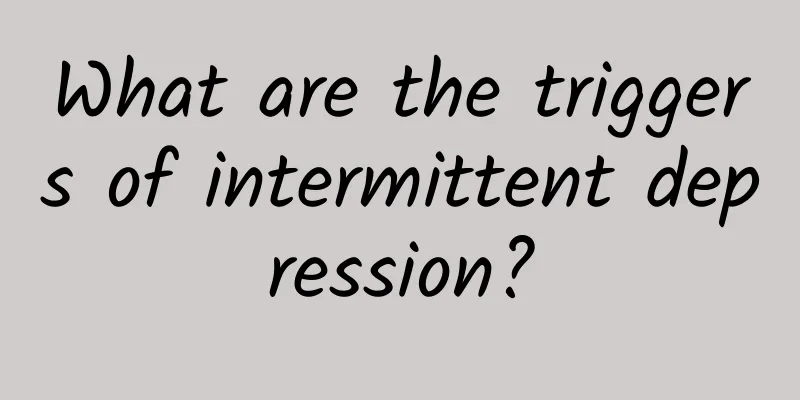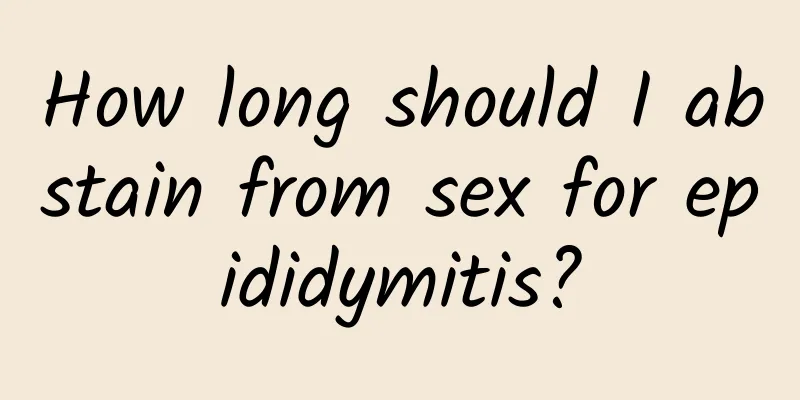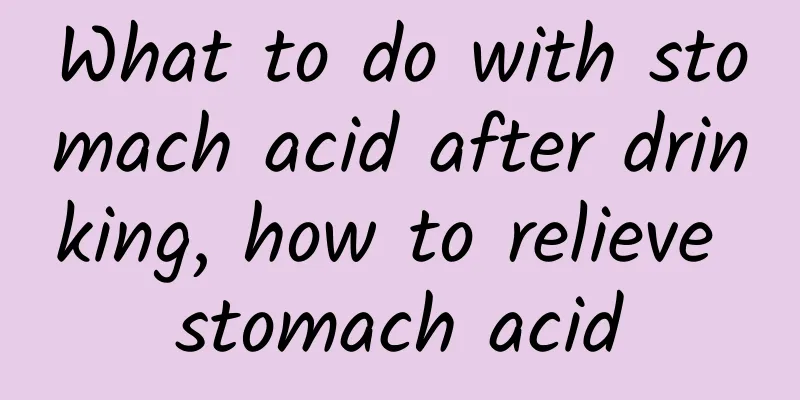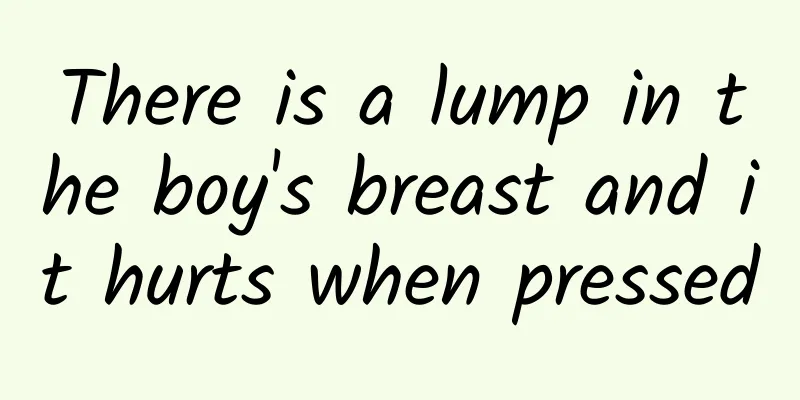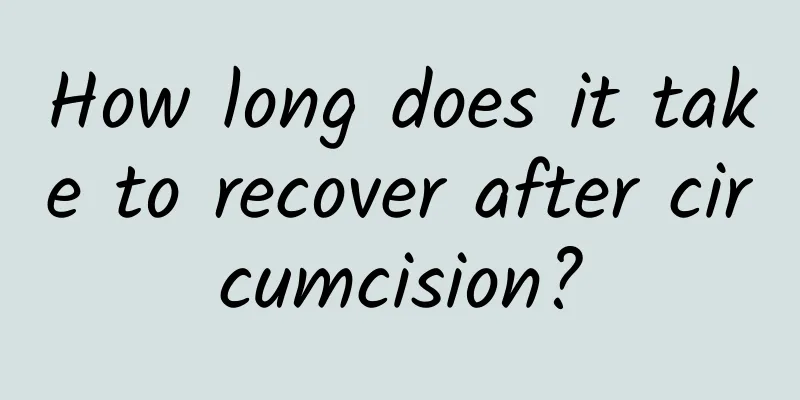What causes stinging sensation during ejaculation?

|
Men are also troubled by many reproductive system diseases. Some male diseases can cause tingling pain during ejaculation, which is a torture for men. In fact, the causes of ejaculation pain include too frequent sex, prostatitis, seminal vesiculitis, etc., and treatment should be targeted at different causes. In life, male friends should try not to wear tight pants, stay away from spicy food, and take good care of the reproductive organs. What causes stinging sensation during ejaculation? 1. Too frequent sexual intercourse According to statistics, 60% of ejaculation pain is caused by too frequent sex. Occasionally, ejaculation pain is induced by excessive excitement or strong and rough movements during sex. This situation is relatively easy to deal with. Just control the number of sexual activities. It is best not to exceed twice a week. 2. Seminal vesiculitis Pain during ejaculation may also be caused by seminal vesiculitis, which is one of the common infectious diseases in men, and the onset age is mostly between 20 and 40 years old. treatment: 1. Choose the right antibiotic Acute seminal vesiculitis should be treated until the symptoms disappear completely, and then continue to take the medicine for 1 to 2 weeks; chronic seminal vesiculitis needs to continue taking the medicine for more than 4 weeks to consolidate the effect. According to our experience, the second-generation cephalosporin, Cialis, and the quinolone, Oxygen, are more effective when applied intravenously. 2. Local treatment Berberine ion penetration, use 1‰ berberine 20 ml enema after defecation, soak the gauze pad with this medicine and place it on the perineum, and connect it to the positive electrode of the DC electrotherapy device, and apply the negative electrode to the pubic bone, 20 minutes each time, once a day, 10 times a course of treatment. Warm water sitz bath (water temperature 42℃) and hot compress on the perineum to improve local blood circulation and help inflammation subside. Avoid sitting for too long to prevent pelvic congestion. 3. Regular life Combine work and rest, avoid smoking, drinking and spicy food. 3. Epididymitis Pain during ejaculation may also be caused by epididymitis, which is a common disease among young men. When the body's resistance is low, pathogenic bacteria such as E. coli, Staphylococcus, and Streptococcus will enter the vas deferens and retrogradely invade the epididymis, causing inflammation. treatment: 1. General treatment Resting in bed and using a scrotal support or a homemade cushion to lift the scrotum can relieve symptoms. Painkillers can be used for severe pain, and local heat therapy can relieve symptoms and promote the disappearance of inflammation. However, using heat therapy too early can aggravate pain and has the risk of promoting the spread of infection. Therefore, it is advisable to use ice packs for local cold compresses in the early stage. Sexual intercourse and physical labor can aggravate the infection and should be avoided. 2. Antibacterial drugs Drugs that are sensitive to bacteria should be selected. Usually, oral antibiotics are taken for 2 to 4 weeks after intravenous administration for 1 to 2 weeks to prevent the disease from turning into chronic inflammation. 3. If antibiotic treatment is ineffective Patients with suspected testicular ischemia should undergo epididymotomy to relieve pressure. Multiple longitudinal or transverse incisions should be made in the epididymal tunica vaginalis, but injury to the epididymal duct should be avoided. 4. Urethritis Pain during ejaculation may also be caused by urethritis. The symptoms of urethritis are often frequent urination, painful urination, urgent urination and hematuria. In the acute phase, men may have urethral secretions, which are initially mucous and later have a lot of purulent secretions. treatment: 1. Antibiotic Application There are many kinds of drugs currently used for treatment. Two to three drugs should be selected and used in combination according to the type of pathogen and its sensitivity to the drugs. The curative effect is better. The medication should be continued for 7 to 10 days before it can be stopped after the symptoms disappear completely, the urine test is normal, and the bacterial culture is negative. 2. Adjunctive therapy In the acute stage, you should drink plenty of water to increase urine volume and flush the urethra. If you have frequent urination, urgency, and pain, you can take anti-convulsants and remove various inducements that cause urethritis. Urethritis caused by sexually transmitted diseases should be treated at the same time as your spouse, otherwise it will be difficult to cure. 3. Local treatment Applicable to chronic urethritis, contraindicated in acute stage. ①Urethra dilation. ②Urethra instillation of drugs. ③Endoscopic electrocautery. 5. Prostatitis Pain during ejaculation may also be caused by prostatitis, which is a common disease in urology and ranks first among male urology patients under 50 years old. treatment: 1. Antimicrobial therapy Currently, quinolone drugs such as ofloxacin or levofloxacin are recommended. If ineffective, continue to use for 8 weeks. If recurrence occurs and the strain remains unchanged, switch to preventive doses to reduce acute attacks and relieve symptoms. 2. Prostate massage and heat therapy Prostate massage is one of the traditional treatment methods. Studies have shown that proper prostate massage can promote the emptying of the prostate duct, increase local drug concentration, and thus relieve the clinical symptoms of chronic prostatitis. Heat therapy mainly uses the heat effect produced by a variety of physical means to increase blood circulation in prostate tissue, accelerate metabolism, and help to eliminate tissue edema and relieve pelvic floor muscle spasms. 3. Anti-inflammatory and analgesic drugs Nonsteroidal anti-inflammatory drugs can improve symptoms. Generally, indomethacin is taken orally or in suppositories. Chinese medicine also has certain effects in using anti-inflammatory, heat-clearing, detoxifying, and hardness-softening drugs. Allopurinol can reduce the concentration of uric acid in the whole body and prostatic fluid. Theoretically, as a free radical scavenger, it can also remove active oxygen components, reduce inflammation, and relieve pain. It is an optional auxiliary treatment method. 4.α-receptor antagonists Patients with prostatitis, bacterial or non-bacterial prostatitis have increased tension in the prostate, bladder neck and urethral smooth muscles. During urination, the increased pressure in the posterior urethra causes urine to flow back into the prostatic duct, which is an important cause of prostatitis, prostatic stones and bacterial prostatitis. The use of α receptor antagonists can effectively improve prostatitis and urination symptoms, which is important for preventing recurrence of infection. α receptor antagonists should be used for a longer course of treatment to allow enough time to adjust the smooth muscle function and consolidate the therapeutic effect. 5.Surgery Surgical treatment can be used for recurrent chronic bacterial prostatitis. Prostatectomy can achieve the goal of cure, but it should be used with caution. Since prostatitis usually affects the peripheral zone of the gland, it is difficult to achieve the goal of treatment with transurethral resection of the prostate. TURP can remove prostate stones and bacterial infection lesions near the prostate ducts, which is beneficial to reduce the reinfection of peripheral zone lesions. Symptoms of prostatitis: 1. Frequent urination and incomplete urination This symptom is one of the most typical symptoms of prostatitis. If you experience sudden stinging or burning sensations when you go to the toilet, and your urination speed increases, and your urination becomes more frequent, and you want to go to the toilet again after a while every time you go to the toilet, then it can be basically determined that you have prostatitis. 2. Pain in the perineum If you have prostatitis, the inflammation may cause a heaviness and pain in your lower abdomen and perineum. Although this condition is not very serious, if the inflammation spreads over a large area or occurs on the inner thigh, then the condition cannot be ignored. 3. Weak urination On the one hand, prostatitis can cause us a lot of pain, and on the other hand, the bladder muscles can also be damaged, which may trigger symptoms of urinary incontinence. In this way, urination will become very difficult for the patient. 4. Urinary incontinence This condition is a complication of prostatitis. If the inflammation spreads to a large area, it will cause the sphincter to lose its function, so we will not be able to control urine. Ways to relieve prostatitis: 1. Drink more water Water plays a metabolic role for the human body. Drinking more water can help urination, quickly excrete toxins in the body, and reduce the time toxins stay in the body. Drinking a little more water every day can fully flush the urethra through urine, which helps the discharge of secretions in the prostate. 2. Stay away from alcohol and spicy food Because spicy food can irritate the prostate, if you eat it frequently, you may experience a burning sensation and urethral discomfort, and in severe cases, it may cause edema and prostate congestion. Therefore, it is better to eat less of it on a regular basis. In addition, alcohol may cause your capillaries to become congested, thus causing edema. 3. Don’t wear tight underwear In order to ensure the health of the prostate, male friends should not wear tight underwear. Because tight clothes are not conducive to the healthy development of our body. 4. Don’t hold your urine If you frequently hold your urine, it may affect your bladder and prostate. So, never hold your urine. 5. Control your sexual intercourse The most important thing to prevent prostate disease is to control your sexual life, which means neither excessive nor abstinence. 6. Develop good eating habits and live a regular life We need to maintain a good work and rest habit, which is the main way for us to ensure our health. So we need a regular life and a reasonable diet. When necessary, we should do more exercise and exercise our body. This can better enhance our resistance. |
<<: What is the disease of male urinary pain and purulent discharge?
>>: Will my sperm be infertile if it is as thin as water?
Recommend
Seven tips to treat dry eyes
As the saying goes: eyes are windows to the soul....
Bull whip stew soup to improve sexual performance
Chinese traditional diet emphasizes that like cur...
How can a man in love not know these rules of love?
There are so many things that men need to learn w...
What causes painful urination after ejaculation?
Spermia refers to the situation where semen is di...
What is the cause of testicular peeling?
In daily life, many men do not pay attention to t...
What is the reason for men's sexual dysfunction?
Harmonious sex life is the spice of married life....
The manifestations of men's weak constitution and the methods of conditioning
From the perspective of traditional Chinese medic...
A small pimple appeared at the base of the penis
Male friends sometimes have many reproductive tro...
What benefits does collagen have for women?
Collagen is a very good thing for women. Collagen...
The psychology of boys in love
Love is something that everyone has to go through...
Small white spots on the penis
The importance of the penis is self-evident. It i...
Small pimples on the base of male genitals
Men are the backbone of a family. The premise of ...
What are the treatments for prostatitis?
I believe everyone knows the importance of the pr...
Men have erectile dysfunction for reasons you can't imagine
According to incomplete statistics, there are mor...
How to control blood pressure? How can we effectively control blood pressure?
Hypertension is a common cardiovascular disease a...
